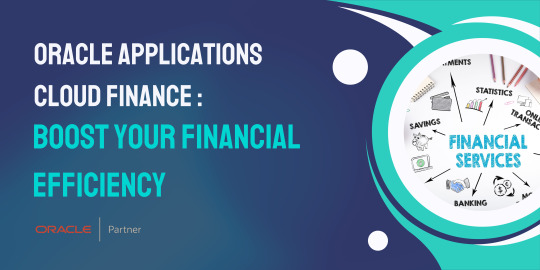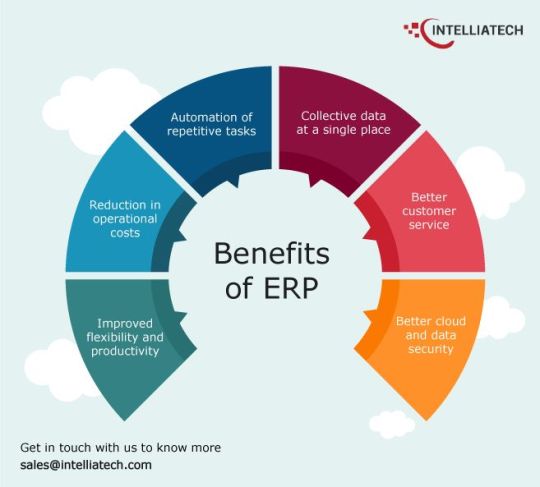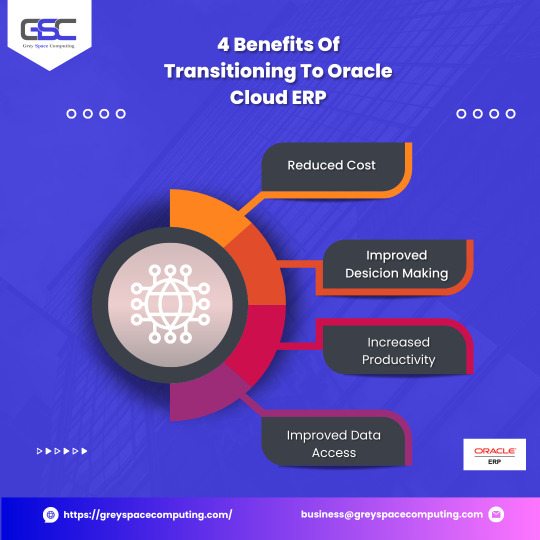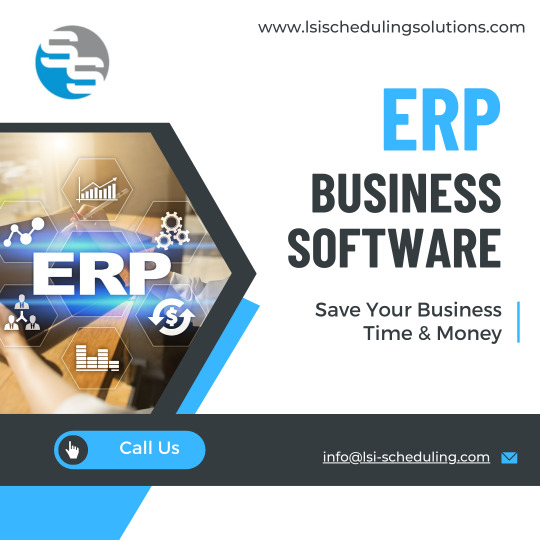#ERP benefits
Text
Implementation of ERP provides long-term results for an organization and its benefits are outstanding. As technology is being advanced and updated day by day, an enterprise should have ERP Software to make business tasks easy. So, Leveetech is listed the top benefits of ERP software.
#benefits of ERP#ERP benefits#erp systems#erp software development company#erp software solutions#erp developers#erp implementation#software#technology#tech#web developers#information technology#erp solutions providеrs
0 notes
Text
Revolutionize Your Business Processes with Our ERP Solutions
Enterprise Resources Planning (ERP) solutions integrate all your various business processes needed to run a company in a single system for all departments, such as finance, manufacturing, HR, supply chain, services, and procurement.
It makes it easier for your employees and clients to work together to increase your reach and revenue by building new business models. ERP will help your business identify what you can do best and where to do better to boost productivity.

Enterprise Resource Planning (ERP) Implementation
On-Premises ERP:
On-premises ERP solutions are installed locally on your computer's hardware and servers, under your control, and managed by your IT Staff. It cannot be accessed through the internet and also cannot be used outside of a physical workspace but can be used on different mobile and handheld devices.
Cloud ERP:
Cloud ERP, also called, Software-as-a-Service (SaaS), is provided as a service. In this deployment, a company's software and related data are managed by the ERP vendor and accessed by customers using a web browser. Companies can access their mission-critical applications at any time, from any location – and it offers the ability to scale and innovate.
Business Advantage of Enterprise Resource Planning ERP)
Enhanced Productivity
ERP system will boost productivity by automating many basic, repetitive tasks, allowing employees to work on other projects that bring more business value to the organization. Employees can complete tasks faster by making processes more straightforward and reducing the time spent searching for the needed information.
Financial organization can enhance their data like budget estimates and cash flow management, enabling them to make informed and critical business decisions through Enterprise Resource Planning (ERP).
Some of the features of Enterprise Resource Planning in finance are:
Generating financial reports
2. Conducting profitability analyses
3. Performing revenue management
4. Managing routine transactions
5. Expense reporting and management
6. Payroll processing
7. Financial reporting
8. Automating manual data entry
Manufacturing industries can achieve greater simplicity, efficiency, insight, collaboration, transparency, and compliance across projects, production, procurement, logistics, and finance
ERP features for manufacturing Industries:
Inventory management:
ERP can streamline resources for inventory tracking, data analysis, and replenishment.
Supply chain:
ERP enables the organization to vendor performance tracking and pulls data from internal and external sources for efficient supply chain planning and management.
Maintenance:
Enables effective maintenance by centralizing scheduling, ticketing, and work order management, along with robust data tracking and analytics to improve maintenance effectiveness.
Equipment performance tracking:
ERP can track and analyze equipment performance data from IoT sensors and reports, enabling you to inform proactive maintenance.
Quality assurance:
Enterprise resource planning can track QA results, creating vast data stores over time that will identify the maintenance requirements.
Purchasing:
Purchasing can be easily organized and can operate with visibility into other related areas of the operation.
Human Resources:
ERP enables HR functions such as performance reviews, goal tracking, etc.
We use Analytical frameworks to evaluate the impact of the factors affecting your company's systems, technology, business process, and environment. With our deep domain expertise in Microsoft ERP and SAP ERP, our consultants engage effectively with our customers in integrating, designing, building, and testing winning Microsoft and SAP business solutions.
#Benefits of ERP#ERP software#RPA ERP#ERP benefits#Enterprise Resource Planning#erp software#Enterprise Resource Planning systems#Cloud ERP solutions
0 notes
Text
Oracle Applications Cloud Finance: Boost Your Financial Efficiency

1. How Oracle Applications Cloud Can Help When It Comes to Finance?
In business technology, cloud computing stands out as a game-changer. Businesses seeking efficiency, scalability, and innovation are increasingly turning to cloud solutions. This article explores how Grey Space Computing leverages Oracle Cloud to provide cutting-edge services that drive business growth and operational excellence.
2. Overview of Grey Space Computing
Grey Space Computing specializes in providing tailored cloud solutions to businesses worldwide. With a focus on Oracle Cloud applications, they help organizations streamline their operations, improve efficiency, and foster innovation. Their team of experts brings a wealth of experience and a commitment to delivering top-notch services.
3. Importance of Cloud Solutions in Modern Business
Cloud solutions have revolutionized how businesses operate. They offer scalability, flexibility, and cost-efficiency, allowing companies to focus on their core competencies while leveraging advanced technologies. Cloud solutions also facilitate remote work, enhance collaboration, and ensure data security, making them indispensable in today’s business environment.
4. Key Services Offered by Grey Space Computing
4.1. Oracle ERP Cloud Implementation
Oracle ERP Cloud provides a comprehensive suite of applications for financial management, procurement, project management, and more. Grey Space Computing ensures seamless implementation, helping businesses automate processes, gain real-time insights, and improve decision-making.
4.2. Oracle HCM Cloud Integration
Human Capital Management (HCM) is crucial for managing a company’s workforce. Grey Space Computing integrates Oracle HCM Cloud to streamline HR processes, from recruitment and onboarding to performance management and payroll, enhancing employee experience and operational efficiency.
4.3. Oracle SCM Cloud Solutions
Supply Chain Management (SCM) is vital for maintaining smooth operations. Grey Space Computing’s Oracle SCM Cloud solutions help businesses manage their supply chains more effectively, improving visibility, optimizing inventory, and ensuring timely delivery of products and services.
4.4. Oracle EPM/PBCS Implementations
Enterprise Performance Management (EPM) and Planning and Budgeting Cloud Services (PBCS) are essential for strategic planning and financial management. Grey Space Computing implements these solutions to help businesses plan, budget, and forecast with precision, driving better financial performance.
4.5. Oracle Cloud Integration Services
Integrating various cloud applications can be challenging. Grey Space Computing provides expert integration services, ensuring that all Oracle Cloud applications work seamlessly together. This integration enhances data flow, improves efficiency, and provides a unified view of business operations.
5. Benefits of Partnering with Grey Space Computing
5.1. Expertise and Experience
With years of experience in cloud computing and Oracle solutions, Grey Space Computing brings unmatched expertise to the table. Their team of certified professionals ensures that clients receive the best solutions tailored to their needs.
5.2. Customized Solutions
Every business is unique, and so are its needs. Grey Space Computing provides customized solutions that align with the specific goals and requirements of each client, ensuring maximum impact and efficiency.
5.3. Comprehensive Support and Training
Implementing new technology can be daunting. Grey Space Computing offers comprehensive support and training to ensure smooth transitions and empower clients to make the most of their Oracle Cloud solutions.
6. Case Studies and Success Stories
Numerous businesses have transformed their operations with the help of Grey Space Computing. From streamlining financial processes to enhancing supply chain efficiency, these success stories highlight the tangible benefits of adopting Oracle Cloud solutions.
7. Future Trends in Cloud Computing and Grey Space Computing's Role
The future of cloud computing is bright, with advancements in AI, machine learning, and blockchain poised to drive further innovation. Grey Space Computing stays ahead of these trends, continuously evolving its offerings to ensure clients remain at the forefront of technology.
8. How to Get Started with Grey Space Computing
Starting your journey with Grey Space Computing is simple. Contact their team for a consultation to discuss your business needs and explore how their Oracle Cloud solutions can drive your success.
9. Conclusion
Grey Space Computing is a leader in providing Oracle Cloud solutions that enhance business operations and drive growth. With their expertise, customized solutions, and comprehensive support, they help businesses unlock the full potential of cloud computing. Partner with Grey Space Computing to stay ahead in the digital age.
10. FAQs
Q1: What is Grey Space Computing?
Grey Space Computing is a company specializing in Oracle Cloud solutions, offering services like ERP implementation, HCM integration, SCM solutions, and more.
Q2: How can Oracle ERP Cloud benefit my business?
Oracle ERP Cloud automates financial processes, provides real-time insights, and improves decision-making, enhancing overall operational efficiency.
Q3: Why is Oracle HCM Cloud important for HR management?
Oracle HCM Cloud streamlines HR processes, improves employee experience, and ensures efficient management of the workforce from recruitment to payroll.
Q4: What support does Grey Space Computing offer during implementation?
They provide comprehensive support and training to ensure a smooth transition and help clients maximize the benefits of their Oracle Cloud solutions.
Q5: How can I get started with Grey Space Computing?
Contact their team for a consultation to discuss your business needs and explore how their Oracle Cloud solutions can drive your success.
#Oracle Applications Cloud finance solutions#How Oracle Cloud helps finance teams#Benefits of Oracle Cloud for financial efficiency#Streamlining financial processes with Oracle Cloud#Oracle ERP Cloud for financial management#Oracle Cloud financial integration services#Financial planning with Oracle Cloud EPM#Boosting financial productivity with Oracle Cloud#Oracle Cloud financial management features#Enhancing financial operations with Oracle Cloud#Oracle Cloud financial data security#Oracle Cloud solutions for finance departments#Cost efficiency with Oracle Cloud finance solutions#Financial analytics with Oracle Applications Cloud#Oracle Cloud services for financial scalability
1 note
·
View note
Text
Businesses are constantly seeking ways to streamline operations, enhance productivity, and gain a competitive edge. One transformative tool that has emerged to address these needs is Enterprise Resource Planning (ERP) systems. By integrating various business processes into a centralized platform, ERP systems have revolutionized the way organizations operate.
Let's know the impact of ERP systems on reshaping business dynamics: https://www.fiessystems.com/how-does-the-erp-system-reshape-business-dynamics/
0 notes
Text
Discover how Cloud-based Enterprise Resource Planning (ERP) systems are revolutionizing education by streamlining administrative tasks, enhancing communication, and facilitating personalized learning experiences. Learn about the key features and benefits of School Management ERP systems and how they empower educational institutions to navigate the digital landscape with agility and efficiency
#school management ERP#cloud-based ERP systems#digital transformation in education#educational technology#streamline administrative tasks#personalized learning experiences#data security in schools#benefits of ERP in education
0 notes
Text
𝗕𝗲𝗻𝗲𝗳𝗶𝘁𝘀 𝗼𝗳 𝗘𝗥𝗣
ERP (Enterprise Resource Planning) is basically a software that any organization can use to manage their day-to-day processes like accounting, human resources, inventory management, planning etc. It provides organizations with real-time, integrated data from a centralized system. It is indeed a great way of streamlining your business operations. Since they come up with modules of varying requirements, it is slowly becoming popular with small businesses too.

We have come up with some major benefits of ERP and why you should consider having it too:
📌 Reduces operational costs and increases profitability across all departments.
📌 Allows automation of repetitive tasks and reduces manual work.
📌 Provides gathered information from different departments at one single place.
📌 It improves overall flexibility of organization operations.
📌 Provides better customer service including faster response time and improved on-time delivery.
📌 Gives better cloud and data security.
If you are also looking for an ERP module then we are happy to help you. Get in touch with us to know more.
0 notes
Text

Dynamics 365 vs NetSuite ERP: A Comparison
In this blog, we provide a comprehensive comparison between two leading enterprise resource planning (ERP) solutions – Microsoft Dynamics 365 and NetSuite ERP. We delve into the details of both systems, comparing their features, capabilities, and suitability for growing businesses. Whether you’re a small startup or a mid-sized business, our comparison will help you make an informed decision about the best ERP solution for your business needs.
Microsoft Dynamics 365 Finance and NetSuite ERP are two of the fastest-growing enterprise resource planning (ERP) solutions. With a focus on ongoing innovation, both offer a comprehensive suite of applications designed to streamline business operations and improve efficiency. But how do they stack up against each other? In this blog, we’ll delve into the details of both systems and compare their features, capabilities, and suitability for growing businesses.
Overview for Microsoft Dynamics 365
Microsoft Dynamics 365 is a suite of intelligent business applications that helps you run your entire business and deliver greater results through predictive, AI-driven insights. It combines CRM and ERP capabilities, integrating seamlessly with other Microsoft products such as Office 365, Power BI, and Azure.
Dynamics 365 offers a range of modules, including Sales, Customer Service, Field Service, Human Resources, Finance, and Supply Chain Management. Each module can be used independently or in combination, providing flexibility and scalability to growing businesses.
Overview of NetSuite
NetSuite ERP, a product of Oracle, is a cloud-based, all-in-one business management solution. It provides a suite of applications, including accounting, inventory management, CRM, and e-commerce. NetSuite is designed to automate operations, streamline processes, and provide real-time visibility into key business metrics.
NetSuite’s strength lies in its unified business suite approach, offering a single source of truth for all business data. It’s particularly popular among mid-sized businesses and large enterprises looking for a comprehensive solution that can scale with their growth.
How NetSuite Compares to Microsoft Dynamics 365 Finance
When comparing NetSuite to Microsoft Dynamics 365 Finance, both offer robust financial management capabilities. However, there are some key differences.
NetSuite provides a comprehensive financial management solution with features like general ledger, accounts payable/receivable, and cash management. It also offers built-in business intelligence with real-time reporting and analytics.
On the other hand, Dynamics 365 Finance goes beyond traditional ERP systems by using AI to predict future trends and make data-driven decisions. It offers in-depth financial insights, automates financial processes, and reduces operational expenses.
Here’s a detailed explanation of how the features of Microsoft Dynamics 365 Finance compare against NetSuite:
User Interface and Customization: Microsoft Dynamics 365 Finance provides a more intuitive and user-friendly experience compared to NetSuite. Its interface is designed to be familiar to users of other Microsoft products, reducing the learning curve and speeding up adoption.
Scalability and Flexibility: Microsoft Dynamics 365 Finance can adapt to the changing needs of businesses of all sizes, from small startups to large enterprises. It offers a wide range of modules and functionalities that can be tailored to specific industry requirements, making it a more flexible solution than NetSuite.
Reporting and Analytics: Microsoft Dynamics 365 Finance provides robust reporting tools, real-time dashboards, and advanced analytics features that enable businesses to make data-driven decisions. While NetSuite also offers reporting features, Dynamics 365 Finance’s integration with Power BI takes its analytics capabilities to another level.
Integration Capabilities: Microsoft Dynamics 365 Finance seamlessly integrates with other Microsoft products, such as Office 365, Power BI, and Azure, providing a unified and connected ecosystem for businesses. This level of integration can lead to increased efficiency and streamlined workflows.
Security and Compliance: Microsoft Dynamics 365 Finance adheres to industry standards and regulations, offering robust security measures to protect sensitive financial data. Microsoft’s commitment to security is well-known, and this extends to Dynamics 365 Finance.
Customer Support and Resources: Microsoft provides a wealth of customer support and community resources for Dynamics 365 Finance users. This includes online documentation, forums, and training materials that can help users maximize the software’s potential.
Overview of Microsoft Dynamics 365 Business Central
Microsoft Dynamics 365 Business Central is a comprehensive business management solution designed for small to mid-sized organizations. It automates, streamlines, and connects various business processes, helping users manage multi-department operations, teams, and projects more efficiently and effectively.
Business Central integrates with other Microsoft cloud services including Office 365 and can be customized or extended for specific industry needs with PowerApps, Microsoft Flow, and Power BI.
Here are some key points about Microsoft Dynamics 365 Business Central:
Comprehensive Business Management: Business Central connects sales, service, finance, and operations to work smarter, adapt faster, and perform better. It provides a unified solution to manage all aspects of your business.
Designed for Small and Mid-sized Organizations: Business Central is optimized for small and mid-sized organizations, providing a solution that can scale along with your business as it grows.
Latest Updates and Features: Microsoft continually invests in Business Central, adding new features and capabilities with each release. The 2021 release wave 2, for example, brought a host of new features and investments by Microsoft to the platform.
Microsoft Dynamics 365 Business Central also comes with built-in light customer relationship management (CRM) capabilities that can help businesses manage their customer relationships more effectively. Here are some key CRM capabilities of Dynamics 365 Business Central:
Contact Management: Business Central allows you to keep track of your contacts and categorize them based on various factors such as sales, relationship status, and engagement history. This helps you manage your relationships with your customers effectively.
Sales Management: With Business Central, you can manage your sales from lead to cash. It allows you to keep track of your sales opportunities, create quotes, manage orders, and handle invoices, all from a single platform.
Service Order Management: Business Central also allows you to manage your service orders and agreements. You can register your after-sales issues including service requests, service orders, and repair requests.
Marketing: Business Central comes with built-in marketing tools that allow you to manage your marketing efforts effectively. You can segment your contacts based on specific criteria and run targeted marketing campaigns.
Integration with Dynamics 365 Sales: If you need more advanced CRM capabilities, Business Central can be integrated with Dynamics 365 Sales. This allows you to synchronize your data across both platforms and provides you with additional CRM features such as sales force automation, customer service, and field service.
Why You Should Choose Microsoft Dynamics Over NetSuite
Choosing between Microsoft Dynamics and NetSuite depends largely on your business needs. However, there are several reasons why you might lean towards Dynamics 365.
Firstly, if your business is already using Microsoft products, Dynamics 365 offers seamless integration, providing a unified and familiar experience for users. Secondly, Dynamics 365’s AI capabilities offer predictive insights that can drive more informed business decisions. Lastly, Dynamics 365 offers more flexibility in terms of deployment, with options for on-premises, cloud, or hybrid models.
Benefits of Dynamics 365
Here are some reasons why you should choose Microsoft Dynamics over NetSuite:
Integration with Microsoft Products: Microsoft Dynamics 365 Finance integrates seamlessly with other Microsoft products, such as Office 365, SharePoint, and SQL databases. This integration allows businesses to leverage their existing Microsoft tools and streamline their operations, which is a significant advantage over NetSuite.
Scalability and Flexibility: Microsoft Dynamics 365 Finance is known for its scalability and flexibility. It can adapt to the changing needs of businesses of all sizes, from small startups to large enterprises. It offers a wide range of modules and functionalities that can be tailored to specific industry requirements.
Advanced Analytics and Reporting: Microsoft Dynamics 365 Finance provides robust reporting tools, real-time dashboards, and advanced analytics features that enable businesses to make data-driven decisions. While NetSuite also offers reporting features, Dynamics 365 Finance’s integration with Power BI takes its analytics capabilities to another level.
Security and Compliance: Microsoft Dynamics 365 Finance adheres to industry standards and regulations, offering robust security measures to protect sensitive financial data. Microsoft’s commitment to security is well-known, and this extends to Dynamics 365 Finance.
Pricing: While both Microsoft Dynamics and NetSuite offer subscription-based pricing models, Dynamics is typically more expensive than NetSuite. However, the additional cost can be justified by the extensive features, capabilities, and integrations offered by Dynamics 365 Finance.
Dynamics 365 and Dynamics 365 Business Central are Best for Growing Businesses
Microsoft Dynamics 365 and Dynamics 365 Business Central are excellent choices for growing businesses due to several reasons:
Comprehensive Business Management Solution: Both Dynamics 365 and Business Central offer comprehensive business management solutions. They streamline and automate business processes, helping businesses manage their operations more efficiently.
Scalability: These platforms are designed to adapt to the changing needs of businesses. As your business grows, Dynamics 365 and Business Central can scale with you, providing the necessary tools and functionalities to handle increased demand.
Connected Cloud Solution: Dynamics 365 Business Central provides a connected cloud business management solution. This means you can bring together your finance, sales, services, and operations teams within a single application, providing the insights needed to drive your business forward.
Optimized for Small and Medium Businesses: Dynamics 365 Business Central is built and optimized for small and medium businesses. It’s an ideal solution for companies that have outgrown their entry-level business applications or are replacing outdated legacy systems.
Integration with Other Microsoft Products: Both Dynamics 365 and Business Central integrate seamlessly with other Microsoft products, such as Office 365, SharePoint, and SQL databases. This integration allows businesses to leverage their existing Microsoft tools and streamline their operations.
Conclusion
Microsoft Dynamics 365 and NetSuite ERP are robust and comprehensive enterprise resource planning systems, each with their unique strengths. However, when it comes to integration with other Microsoft products, scalability, and advanced analytics capabilities, Dynamics 365 stands out. Its AI-driven insights, flexibility, and seamless integration with familiar Microsoft tools make it a compelling choice, particularly for businesses already invested in the Microsoft ecosystem.
Dynamics 365 Finance and Dynamics 365 Business Central, in particular, offer highly detailed business management solutions that can scale with the growth of your business. Their robust reporting tools, real-time dashboards, and advanced analytics features enable businesses to make data-driven decisions. Moreover, their adherence to industry standards and regulations ensures robust security measures to protect sensitive financial data.
Ultimately, the choice between Dynamics 365 and NetSuite ERP will depend on your specific business needs and existing infrastructure. However, for growing businesses seeking a scalable, flexible, and integrated solution, Dynamics 365 Business Central presents a compelling case.
Consult our experts to discuss your business requirements and plan your Dynamics 365 ERP implementation or migration. Get in touch here.
#microsoft dynamics 365 vs netsuite#netsuite vs microsoft dynamics#netsuite erp overview#microsoft dynamics 365 business central overview#benefits of dynamics 365
0 notes
Text
https://pmtrackerp.in/crm-and-erp-integration-benefits/
#ERP Manufacturing#ERP Process Manufacturing#ERP Manufacturing Benefits#ERP Software Company#ERP Manufacturing Company#ERP Solution
0 notes
Text
Knowing ERP can be a little overwhelming and you may have a lot of questions. So, here we are with the answers to it. We got all your ERP questions answered by the experts. Discover key modules included in an ERP system, benefits for businesses, customization options, scalability for small businesses, data security measures, integration capabilities, and unlock continuous business growth with ERP. Connect with us today!
0 notes
Text

Take your business to new heights with Oracle ERP Cloud! 🚀 Dive into the perks of making the switch – unlock efficiency, gain valuable insights, and ignite innovation. Ready for a game-changing transformation? Explore the benefits now!
🌐 Website: https://greyspacecomputing.com/oracle-erp-solution/
📧 Email: [email protected]
📱 Phone: +91-98602 56990
#OracleERP #BusinessGrowth #greyspacecomputing #reducedcost #productivity ##cloudsolutions #clouderp #cloudapplications #oraclepartnerindonesia #oraclepartner #odi #optimadatainternasional #odilife #oracleodi #oracleerpcloud #oraclehcm #oraclehcmcloud #Saudi #Dubai #India #Kuwait #Qatar
1 note
·
View note
Text
0 notes
Text
How ERP Systems Benefit ISPs, D2H, and IPTV Providers
In today’s digital era, Information Service Providers (ISPs), Direct-to-Home (D2H) operators, and Internet Protocol Television (IPTV) providers are experiencing rapid growth due to the increasing demand for seamless connectivity and content streaming. However, managing the complex operations and diverse services in these industries can be overwhelming without proper tools. This is where Enterprise Resource Planning (ERP) systems step in, revolutionizing the way these businesses’ function. In this blog, we will explore how ERP systems benefit ISPs, D2H, and IPTV providers, with insights from Prudence Consulting, a leading expert in ERP implementation.
0 notes
Text
Benefits of ERP Systems in the Healthcare Industry

The system selected by a hospital or physician network will be determined by a variety of variables, including integration with existing systems, hospital or network size, and whether mobile access is relevant.
0 notes
Text

ERP Business Software
Enterprise Resource Planning (ERP) software is a comprehensive business management solution that integrates various functional areas of an organization into a centralized system. It provides a suite of applications and tools to streamline business processes, improve efficiency, and enhance decision-making.
Implementing an ERP system requires careful planning, stakeholder involvement, and training. It is crucial to select an ERP software that aligns with the specific needs of the business and can be tailored to suit its requirements. By leveraging ERP software, businesses can streamline processes, improve efficiency, enhance decision-making, and gain a competitive advantage in the market.
To know more, browse https://lsi-scheduling.com/
#erp business software#erp business software solutions#erp enterprise software#erp business solutions#erp system business process#erp software system requirements#best enterprise erp software#erp business systems#erp business applications#erp enterprise applications#erp benefits for business#erp in business process#what is erp in business#example of erp in business#erp system software#enterprise planning system#enterprise planning software#erp production scheduling
0 notes
Text
ERP System: Meaning, Work Process, Key Features, Advantages, Disadvantages!
Do you want all info about ERP System? ERP stands for enterprise resource planning, and the type of software helps businesses manage. We provide some of the key features, advantages & Disadvantages of ERP Systems, ERP deployment models, etc. For more details, check out our blog now!

#advantages of erp system#benefits of erp implementation#benefits of erp software#erp deployment models#erp system#features of enterprise resource planning system
0 notes
